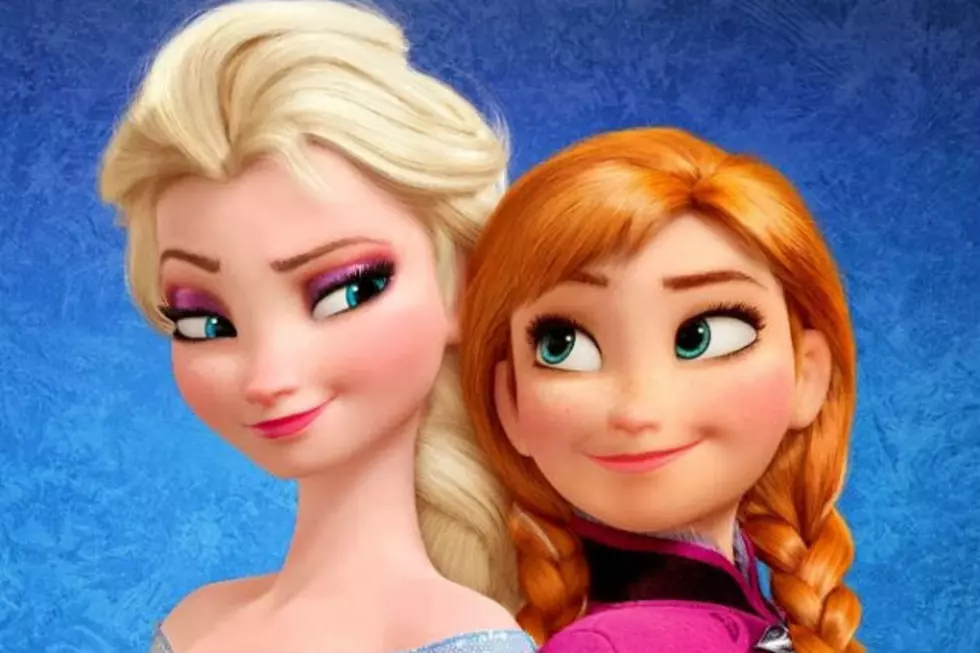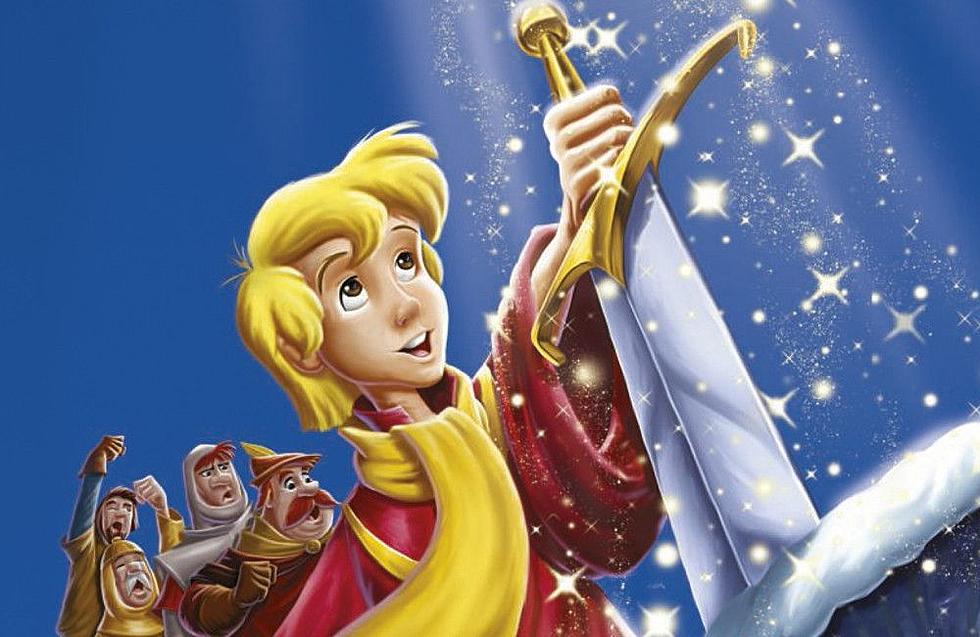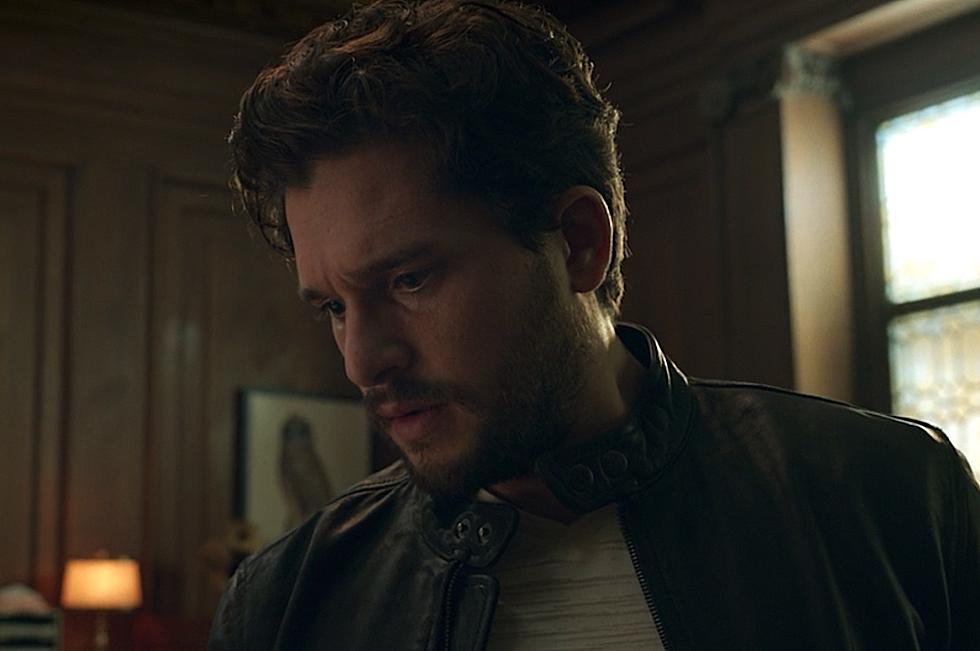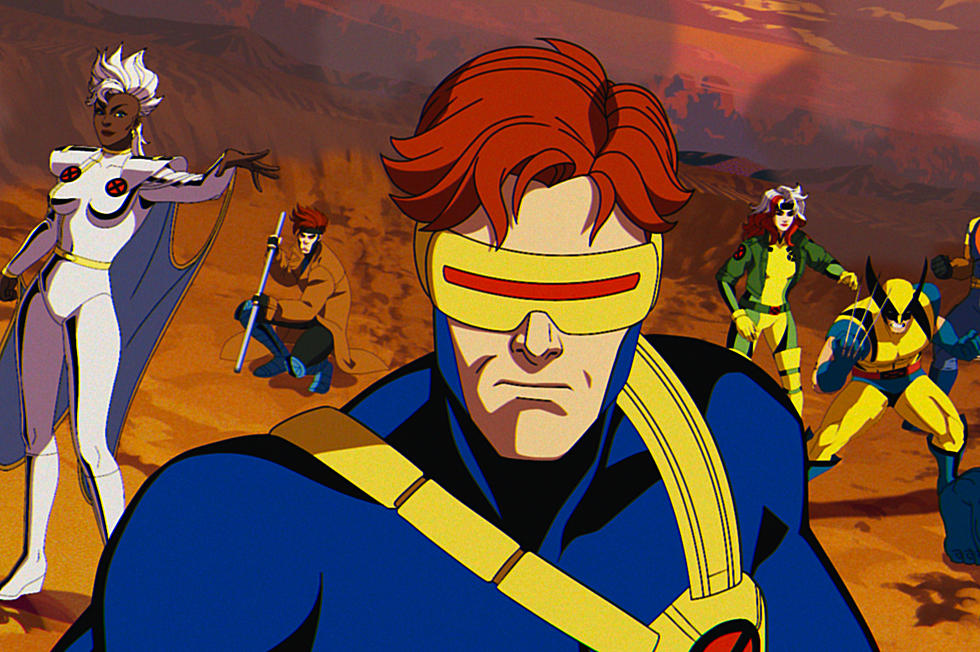
Reel Women: ‘Frozen’ Subverts Disney Princess Stereotypes
'Frozen,' the most recent animated release from Disney and the latest addition to their princess franchise, is a landmark film for the studio. It takes the princess stereotypes, which have been nurtured and perpetuated by Disney for decades, and completely subverts them, breathing new life into the idea of what it means to be a Disney Princess -- and giving little girls everywhere princesses who are inspirational and relatable, with stories that hit close to home and reflect real social and gender issues.
Elsa and Anna are little princesses, born into royalty -- but Elsa was born with a little something extra: the power of ice and snow. When Elsa accidentally hurts Anna with her power, their parents take Anna away to be healed and lock Elsa up in her room, cover her hands with gloves, and lock the outer gates of their village, never letting the outside world in. The message is clear: in order for Elsa to control her powers, she must repress her feelings and never let anyone in.
It's such a simple set-up, but that opening sequence alone is layered with so much meaning for young women on the verge of coming of age, especially those with sisters or close friends -- and that's every girl. Right off the bat, 'Frozen' is a film for every girl; Disney nailed it. Utilizing a trope more commonly found in the horror genre ('Carrie' and 'Jennifer's Body' are good examples, and ones which I recently wrote about here), 'Frozen' uses the idea of magic powers as a metaphor for coming of age, a time when feelings are raw, unpredictable, terrifying, and new. Elsa is the older sister, and Anna doesn't share her powers, so the younger is alienated and left out in the cold, so to speak.
But 'Frozen' doesn't dampen itself by exploring just one concept -- there's also the idea of sisterly bonds and being your own worst enemy, of opening your heart and sharing your burdens. Sister bonds are so incredibly special and enduring, and we see it when Elsa emerges from her room for the coronation on her 18th birthday -- after being locked up in her room for 10 years -- and as soon as she's next to Anna, the two are giggling and joking as if nothing happened. When they fight, it's tragic and heartbreaking because there's never a winner; they have to be in this together. Elsa's powers spin out of control, and as foretold, fear is her greatest enemy -- it's not the fear of others, but the fear within herself. And it's that fear that keeps her from letting Anna and the people who would be her friends in to help.
But it's also fear that was placed there by her parents, ingrained in her from a young age -- "Conceal, don't feel, don't let them know," she keeps repeating to herself. It's a mantra she's been repeating since childhood, and it's become a safety blanket, but it's obviously not working. The problem is that these powers are a part of her; they exist, therefore they are natural. The more she suppresses it, the worse it comes out, like holding back a rubber band. All of this is, again, merely allegory for a young woman's coming of age -- the inexplicable new feelings and our sudden appeal to the opposite sex, both of which could be described as having "powers." 'Frozen' is a (much, much) gentler version of 'Carrie,' if you will -- and much more thoughtful and charming, too.
Young women go through most of their lives being told to conceal and be ashamed of that which makes them who they are, while also being given the mixed message that, at some point, we should embrace these defining characteristics and be proud of them -- to an extent that is determined by some vague, but widely agreed upon, objective standard. Basically, we're damned either way. 'Frozen' speaks to young girls who are already experiencing the beginnings of this double standard -- be yourself, but not too yourself. Be a girl, but don't, you know, cry about it.
But 'Frozen' offers an alternative: just be yourself, okay? The princesses in this film are unlike any Disney has offered before, and we've seen hints in the evolutionary steps they've taken with 'The Frog Princess' and 'Tangled,' but 'Frozen' feels like the final step. Anna and Elsa are just so real and relatable. Anna is clumsy and awkward and says everything that is on her mind, especially when it's wildly inappropriate, but she's also proactive and takes big risks, and she rescues guys from danger by setting things on fire and throwing them at wolves. She's impetuous and the film acknowledges it as both a flaw and a strength because it can be both -- because women can be two things at once, because we are complex and not singular. Elsa is stubborn and learns to embrace her power, and even though the film has the opportunity to turn her into a villain, it doesn't -- because again, women are more complex than that. Instead, the bad guys are actually guys -- guys who want to take Elsa and Anna's throne for themselves because they're men who feel entitled to it.
Of the many things 'Frozen' gets right (and there are so many that typing them out makes me appreciate it even more), it's the idea of "true love" that conquers all. At the end of the day, it's not a prince or a man who saves these women -- it's themselves.
More From ScreenCrush









